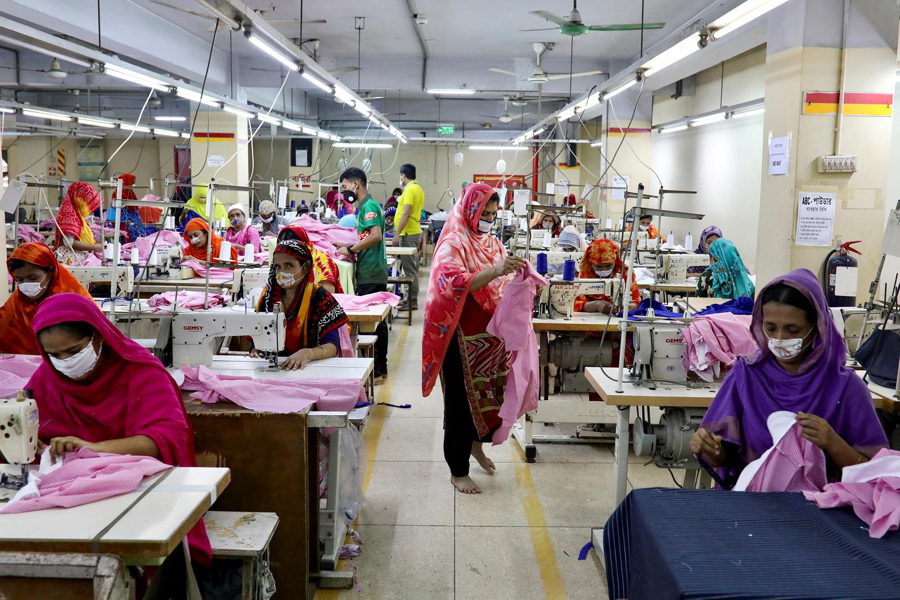Forwarding exports to US under modified tariff regime
Bangladesh to seek 0–15pc US tariffs on 6,000 items in new trade push

Published :
Updated :

Bangladesh seeks to avail zero-to 15-percent tariffs on nearly 6000 export goods to the US market under a latest tradeoff with prime goal of exporting garments at lower costs.
A draft agreement on Economic partnership has already been sent with the product list to the United States Trade Representative (USTR) for consideration by the Trump administration.
Talking to The Financial Express, senior officials of relevant government ministries, who are involved with ongoing negotiations with the USTR, have said they found a scope to pursue the proposal with the US due to recent shift in the US tariff policy on agricultural produce and with three South Asian countries.
Officials say the USTR has suggested Bangladesh representatives to place the proposal directly to President Donald Trump by Chief Adviser Prof Muhammad Yunus.
Talking to the FE, officials confirm that Bangladesh has proposed a list of goods out of its total 7,458 tariff lines to get in zero-to 15-percent duty range on the US market.
As per international trade practices, they mention, a country won't ink bilateral agreement if trade preference for 80 per cent of the tariff lines and 90 per cent of import goods not ensured.
A senior official at the Ministry of Commerce says the interim government is likely to ink the economic partnership deals with the United States before upcoming national election that ends its rule.
The official says the Bangladesh government was a bit concerned over Trump negotiations with India as to whether it offers lower duty to the competitor, but the USTR assured the government representatives that it won't' happen.
They note that several clauses in the US agreements refer to 'non-market economies' where the government regulates the market.
"We have asked the USTR how the US offered a better deal to Cambodia. Are they referring to a communist non-market economy or a democratic one?" says the official about bargain points.
"Our constant engagement with the US paid off when tariffs were reduced to 20 per cent on September 1, 2025. Countries that maintained consistent engagement with the US were able to get their tariffs cut down," he adds.
Stacking tax may help stay competitive, but the impact of a 35-percent tariff affects the purchasing power of US consumers.
"Tariff negotiations with the US may conclude with an agreement signed during the current government's regime," the official reiterates.
He says most of the trade issues with the US are settled except one: amendments to the Rules of Origin regarding setting the value-addition benchmark.
In July last, the US set minimum value-addition requirement of 40 per cent for Bangladeshi garment products along with 35 per cent tariffs.
Officials said the US pursued Bangladesh to offer trade preferences on its goods earlier, and now Bangladesh placed a counter-proposal.
In the current fiscal year's budget, Bangladesh has offered zero-duty benefit on 100 of US imports.
"Now, we have placed a counter-proposal seeking duty-free access to the US."
On October 27, 2025, the US granted import-tariff waivers on some specific products to three Southeast Asian countries -- Thailand, Malaysia, and Cambodia -- under a new trade agreement announced during the ASEAN Summit in Kuala Lumpur.
On November 14, 2025, the White House issued an executive order modifying scope of reciprocal tariffs following US buyers' eroding purchasing capacity.
Agricultural produce not grown in the US is excluded from the reciprocal tariffs. In the array of items are coffee and tea, tropical fruits and fruit juices, cocoa and spices, bananas, oranges, and tomatoes, beef; and additional fertilizers (some fertilizers have never been subject to the reciprocal tariffs), according to a statement issued by White House.
Bangladesh Garment Manufacturers and Exporters Association (BGMEA) president Mahmud Hasan Babu sounds upbeat about the prospect as he says now Bangladesh has got the references of other countries where the US offered zero-duty benefit.
"Earlier, the US side told us that there were no instances that the US offers zero duty to a country but now it has started offering the benefits to other countries," he says.
He thinks if Bangladesh's negotiation on zero-to 15-percent tariffs succeeds, both Bangladesh and US citizens would be able to get its positive reflection.
doulotakter11@gmail.com


 For all latest news, follow The Financial Express Google News channel.
For all latest news, follow The Financial Express Google News channel.